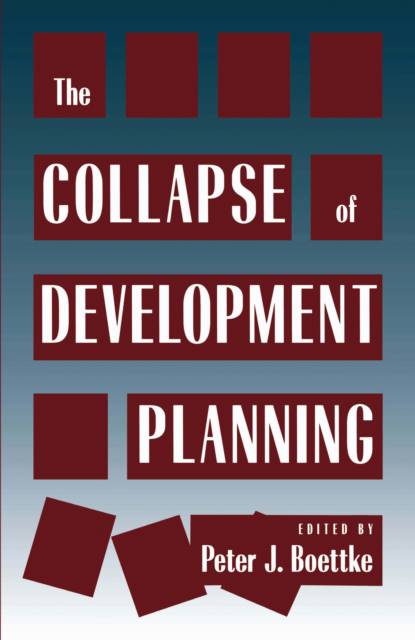
En raison d'une grêve chez bpost, votre commande pourrait être retardée. Vous avez besoin d’un livre rapidement ? Nos magasins vous accueillent à bras ouverts !
- Retrait gratuit dans votre magasin Club
- 7.000.000 titres dans notre catalogue
- Payer en toute sécurité
- Toujours un magasin près de chez vous
En raison de la grêve chez bpost, votre commande pourrait être retardée. Vous avez besoin d’un livre rapidement ? Nos magasins vous accueillent à bras ouverts !
- Retrait gratuit dans votre magasin Club
- 7.000.0000 titres dans notre catalogue
- Payer en toute sécurité
- Toujours un magasin près de chez vous
Description
Addresses one of the most pressing issues of international political economy
Conventional wisdom has it that government management of the economy is the means to transform a backward economy into a dynamic, modern one. Yet, after decades of international aid programs, development planning is today largely perceived as a failure paralyzed by its own bureaucracy and inefficiency. Despite billions of dollars of investment, development successes are few and far between and waste and mismanagement abounds. This book showcases a diverse range of development experiences in order to ascertain the reasons for this quagmire. Case studies of development planning in China, India, post-WWII Japan, South Korea, Africa, and Eastern Europe, and of foreign aid programs (including the Marshall Plan) illustrate the insights an Austrian approach provides toward an understanding of the failure of government development planning. While economists working within the Austrian tradition have previously addressed development issues, this volume represents the first full-length treatment of the subject from a modern market process perspective. Exploding the hegemony of the traditional development paradigm, The Collapse of Development Planning addresses one of the most pressing issues of international political economy. Contributing to the volume are: George Ayittey (American University), Wayne T. Brough (Citizens for a Sound Economy, Washington, DC), Young Back Choi (St. John's University), Steven Hanke (Johns Hopkins University), Steve Horwitz (St. Lawrence University), Shyam J. Kamath (California State University, Hayward), Shigeto Naka (Hiroshima City University), David Osterfeld (St. Joseph's College), Manisha Perera (University of Northern Colorado), Jan S. Prybyla (Pennsylvania State University), Ralph Raico (State University College, Buffalo), Parth Shah (University of Michigan, Dearborn), Kurt Schuller (Johns Hopkins University), Kiyokazu Tanaka (Sophia University, Tokyo), and Mark Thorton (Auburn University).Spécifications
Parties prenantes
- Auteur(s) :
- Editeur:
Contenu
- Nombre de pages :
- 342
- Langue:
- Anglais
- Collection :
Caractéristiques
- EAN:
- 9780814712252
- Date de parution :
- 01-07-94
- Format:
- Livre broché
- Format numérique:
- Trade paperback (VS)
- Dimensions :
- 150 mm x 228 mm
- Poids :
- 476 g

Les avis
Nous publions uniquement les avis qui respectent les conditions requises. Consultez nos conditions pour les avis.






